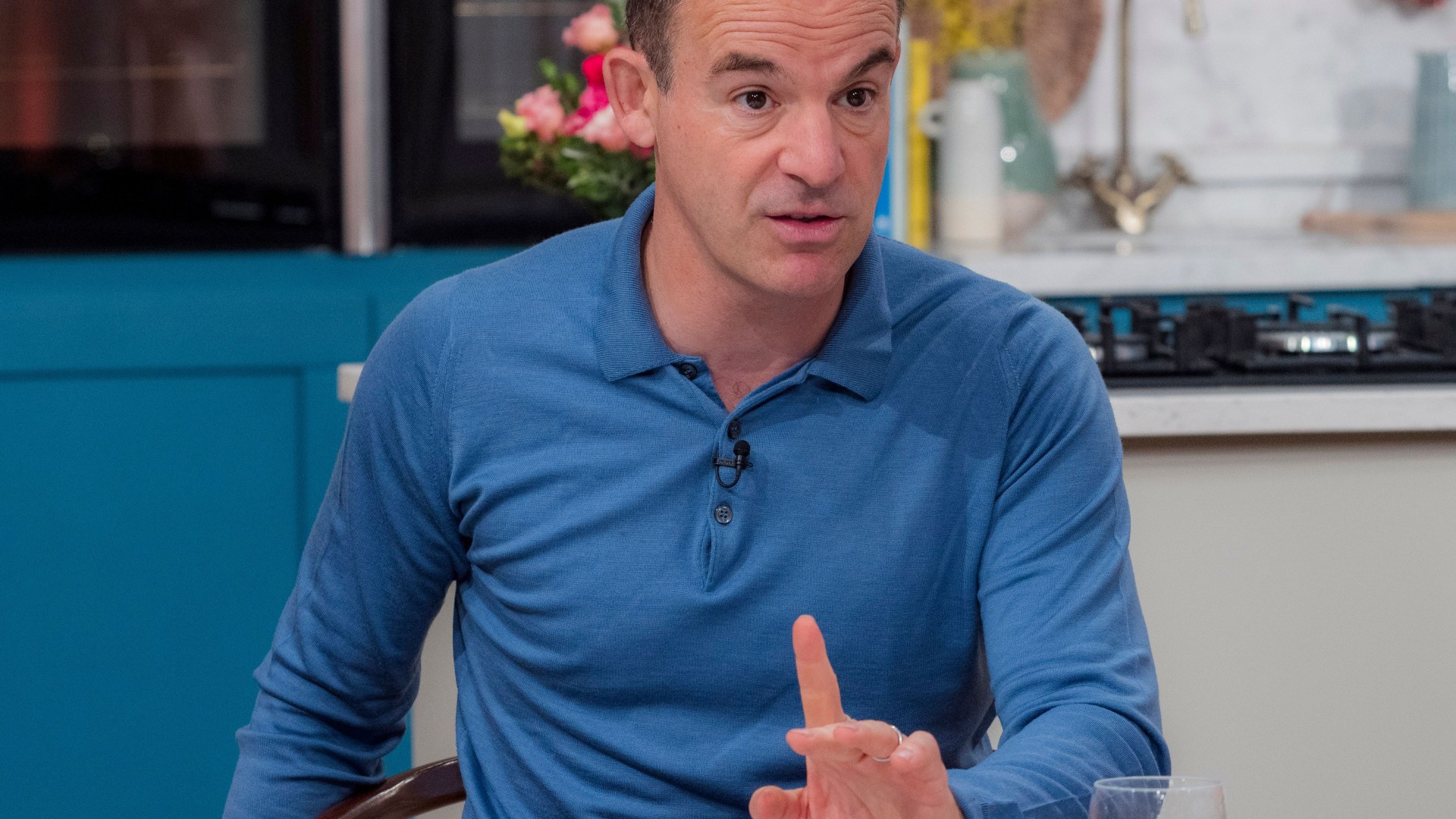This is an audio transcript of the Behind the Money podcast episode: ‘Why Volkswagen hit the skids’
[MUSIC PLAYING]
Michela Tindera
Earlier this month, the FT’s Patricia Nilsson hopped on a train to go to a small city in Germany called Wolfsburg.
Patricia Nilsson
It’s quite a modest town. It’s not a, you know, it doesn’t look particularly rich.
Michela Tindera
But Wolfsburg is known best for being the headquarters of Europe’s largest carmaker, Volkswagen.
Patricia Nilsson
When you roll into Wolfsburg, you see the company’s old power plant. So there are these four large chimneys as it is the image of German industry. The town is very much shaped by the factory and life around it.
Michela Tindera
There’s even a Volkswagen-themed park called the Autostadt. Tourists can test drive new car models on all train tracks or visit a museum dedicated to the company’s history. And people come from other places in the country to get a job at Volkswagen. People like Benny Littau . . .
[PATRICIA AND BENNY SPEAKING IN GERMAN]
Michela Tindera
On her trip, Patricia went to the offices of the Volkswagen Workers Union, where she met Benny, who’s been with VW for more than 20 years.
Patricia Nilsson
So Benny told me he joined Volkswagen as a trainee in 2002. So he’s worked at the company for quite a while.
Michela Tindera
Today, Benny works in a factory in Wolfsburg that makes the Golf one of Volkswagen’s all-time best-selling cars.
Patricia Nilsson
And he told me that growing up, working at Volkswagen was, you know, an obvious choice to a lot of people. I mean, everyone knew that a lot of people would end up there. He himself actually said that he never really wanted to work at Volkswagen because it’s seen as quite hard labour. But that’s where he ended up.
Michela Tindera
Volkswagen is Germany’s largest private employer. So there are a lot of people like Benny, who for a long time have relied on the security of a VW job.
[BENNY SPEAKING IN GERMAN]
Patricia Nilsson
He told me that when the financial crisis came around, he was very happy to be there, felt very safe to be there. He told me that he has a lot of friends who work at other companies who have lost jobs when financial crises rolled around. And that has never been the case with Volkswagen.
[BENNY SPEAKING IN GERMAN]
Patricia Nilsson
He told me that there used to be a saying in his family, go to Volkswagen and you’ll be secure.
Michela Tindera
But recently that security has been threatened.
News clip
At a special meeting of the workforce at its headquarters. VW executives told employees that the company may have to close factories in Germany.
News clip
This is a historic move being considered, of course, by VW to shutter factories in Germany for the first time in its 87-year history.
Michela Tindera
These proposed measures throw the feature into question for both an iconic German brand and the people who work for it like Benny Littau.
Patricia Nilsson
Volkswagen has been a symbol of Germany’s postwar industrial growth. Its miraculous postwar industrial growth, as many people have called it. And if Volkswagen will start laying people off, closing factories and saying that you can’t produce things as competitively as you could in the past in Germany. That will have massive impacts, just not just on Germany’s economy and especially the economy of places like Wolfsburg. It will also have a big impact on how the country views itself.
[MUSIC PLAYING]
Michela Tindera
I’m Michela Tindera from the Financial Times. Volkswagen is considering taking an unprecedented step, closing German factories for the first time in decades. Today on Behind the Money, what’s gone wrong at Volkswagen and what these struggles say about Germany’s position as Europe’s industrial giant.
First off, let’s get something clarified.
Patricia Nilsson
It’s important to distinguish between Volkswagen Group, which is the sort of parent company that has 10 different car brands, and Volkswagen brand. And it’s the Volkswagen brand in particular that’s doing pretty badly right now.
Michela Tindera
The Volkswagen brand is very important to its parent, the Volkswagen Group, which also has names like Audi and Porsche. That’s because the VW brand produces roughly half of the total cars made by the whole Volkswagen Group. So when business is bad for Volkswagen brand, that’s bad for the entire company. And lately, Patricia says the VW brand has been dealing with high costs and profit margins that have been lower than what analysts, investors and management have wanted.
Patricia Nilsson
The CFO of Volkswagen Group said something quite strong, which is that he believes that the company only has one or maybe two years to turn things around. That obviously spurs the question: What will happen if they don’t manage to reduce costs at Volkswagen?
Michela Tindera
It’s the biggest crisis for the company since, well . . .
News clip
The EPA recently announced that Volkswagen cheated on emissions test, allowing almost half a million badly polluting diesel cars onto America’s roads.
News clip
The company admits it rigged 11mn vehicles worldwide to cheat on emissions tests.
Michela Tindera
Dieselgate. Remember that? A quick refresher, in 2015, US regulators found that Volkswagen had installed software in millions of its cars that could cheat emissions tests. The scandal was a huge blow to Volkswagen. The company paid out over €32bn in legal fees and fines related to the cover-up.
Patricia Nilsson
One important effect of Dieselgate was that it meant gaining market share and making money in the US was probably not going to happen for quite a long time. Volkswagen sort of said, OK, we want to leave that behind and really threw itself into EV technology and investing big time in electric vehicles.
Michela Tindera
Plus, in 2022, the EU announced that the sale of new combustion engine vehicles would be banned by 2035. So VW poured billions of dollars into this new EV strategy.
Patricia Nilsson
They’re trying to develop their own batteries. They even set up their own software company. So they’ve gone in big on investing in future technologies.
Michela Tindera
But after spending so much on this investment, it just hasn’t panned out.
Patricia Nilsson
Let’s not forget that engines, I mean, engineering, that’s what German carmaking was all about. That’s what they were best at. Now, with the shift towards EVs, competitive advantage is more given by good software or good batteries. And Volkswagen and other German carmakers, that’s just not what they’re best at. At the same time, in Europe and in Germany specifically, sales of EVs in the past year have been much lower than expected.
Michela Tinder
Slower sales of EVs is something that car companies in the US and Europe are having to reckon with right now. But for Volkswagen, that’s just part of the problem. The other problem has to do with demand in China.
Patricia Nilsson
Volkswagen has a very special relationship with China. In the late ‘80s, it was one of the first western companies that entered the country. And for years, for decades, it’s been the largest foreign carmaker in China. That means that for a very long time, the money that Volkswagen was making in China to some extent has been masking lower margins in its home market. Some people even say that these well-paid jobs in Wolfsburg have for a long time been paid by Chinese consumers.
Michela Tindera
But lately, the brand has lost some of its appeal among those Chinese consumers.
Patricia Nilsson
You know, 10 years ago, 15 years ago, owning a German car was high status. But that is not really the case any more. Younger consumers are much more likely to want to have a Chinese car. So you see, for example, brands such as BYD, which have been rapidly increasing their market share.
Michela Tindera
With China profits disappearing, issues elsewhere are becoming more apparent.
Patricia Nilsson
At the same time, we’re also seeing overall car sales sort of slip. One figure that’s Arnault Anlitz, the CFO of Volkswagen, cited was that Volkswagen itself, the group, is selling half a million fewer cars in Europe annually. And he said, you know, this market is gone and it’s not coming back.
Michela Tindera
Part of the reason for that is the broader cost of living crisis that Europeans are facing at the moment.
Patricia Nilsson
People just don’t have that much money to make such big purchases. You’ve also seen that since the pandemic when there was a massive shortage of semiconductors, the average car prices just sort of shot up. And so cars have also become significantly more expensive since. A lot of families are saying, OK, perhaps we don’t need two cars, perhaps we will have one car.
Michela Tindera
So with all these problems mounting, the companies tried to adapt. Last year, Volkswagen launched a big restructuring program to boost margins, but it hasn’t worked. Instead, margins have continued to fall.
Patricia Nilsson
And earlier this month, it was leaked that the boss of the Volkswagen brand had warned that the cost-cutting wasn’t enough and they were going to have to turn to more extreme measures.
[MUSIC PLAYING]
Michela Tindera
Coming up, we’ll take a closer look at the battle brewing between Volkswagen management and the company’s German workers.
[LIFE AND ART FROM FT WEEKEND PODCAST TRAILER PLAYING]
During tough times, workers of Volkswagen like Benny Littau have made concessions so people can keep their jobs.
[BENNY SPEAKING IN GERMAN]
Patricia Nilsson
OK. So about two years ago his factories stopped having a night shift. And one way that’s relieving, Benny told me that, of course, working nights is hard on the body, hard for your mental health. But on the other side, night shifts also pay better. So this means that workers that have lost their night shifts have taken effective pay cuts, sometimes losing up to hundreds of euros each month.
Michela Tindera
But when the news came of potential factory closures, it was a shock.
[BENNY SPEAKING IN GERMAN]
Patricia Nilsson
Benny, told me that a lot of his colleagues are scared. Some people are struggling to pay their mortgages. Other people are responsible for their families and are not really sure how they’re going to manage going forward.
Michela Tindera
Earlier this month, in addition to the news about the factories, there was also news that the company was tossing out a three-decade-old job security agreement that was supposed to last through 2029. So, Patricia, why does the company say that it needs to take these measures now after, you know, so many years and so many challenges?
Patricia Nilsson
The company is saying that this is not a short-term crisis. They are saying they will be producing fewer cars in the future and need less capacity, and that’s that. So Volkswagen’s flagship brand last year said it would have to save €10bn by 2026 in order to boost its margins. And that program relied on, you know, what is frequently referred to as the demographic transition, meaning that they’re waiting for people from the boomer generation to retire and they’re not replacing them. But what happened now in September was it turned out that management is saying these cost cuts have not been enough. They’re still several billion euros short. And they’re saying that in order to save this company, they need to take more drastic action. If you talk to analysts, investors, there are a lot of watchers who are saying that this is going to be painful, these cost cuts are going to be painful, but they have to be done.
Michela Tindera
Both Volkswagen’s union, which is called IG Metall and the Works Council, which is the group that represents workers on VW’s board, strongly opposed shutting down factories and laying off workers. So what do they say to all this?
Patricia Nilsson
So Daniela Cavallo, who is the chair of Volkswagen’s powerful Works Council, she unsurprisingly, is saying that with her there, there will not be any job cuts, there will not be any factory closures.
People like Cavallo is saying that the issues that Volkswagen is having right now are not workers’ faults, but rather faults committed by management years ago. So specifically, they have accused executives at Volkswagen of not having made the right decisions when it comes to investing in hybrid vehicles, for example, which are proving quite popular right now. And most importantly, people like Cavallo are saying cutting jobs won’t address the main issue, which is the lagging demand for Volkswagen cars. The Works Council is sort of saying that it sounds like the company is giving up, that Volkswagen should be fighting now to regain market share and maintain its position as Europe’s largest carmaker and as a very important brand in China as well.
Michela Tindera
What would you say is next in this battle between management and the Works Council?
Patricia Nilsson
This is going to be a big fight and it’s going to be months before it’s resolved. And no matter who wins, it will have a ripple effect across Germany and for other companies that have for years, for decades coexisted with their Works Council, where decisions have been made together with the Works Council. The question really here is, can this model survive at this moment of crisis in Europe?
Michela Tindera
Besides the cost-cutting, though, does the company have any other plans to turn things around?
Patricia Nilsson
Well, the relatively new chief executive, Oliver Blume, he has outlined a plan. Volkswagen has made very big investments in China recently where they have developed this in China for China strategy which basically means that there are joint ventures and the country should be able to make decisions faster and not have to run everything by Wolfsburg. The company also recently made a $5bn deal to create a joint venture with Rivian, a US maker of electric pick-up trucks, which the company says will hopefully solve its problems with software. Although it seems like it might be a little bit more complicated than that. So the company is investing for the future. There is a plan, but whether that plan works out will depend a lot on what happens to demand in Europe and in China.
Michela Tindera
What happens if they just can’t turn it around?
Patricia Nilsson
It’s a very good question because Volkswagen is essentially too big to fail. I really can’t imagine a future where the company would go bankrupt or anything like that. I mean, it is Germany’s largest private employer and Lower Saxony, the state where its headquarters are based owns a stake in the company as well. So I can’t imagine it going bankrupt. But the question, of course, is how will the company adapt to the future?
Michela Tindera
If these manufacturing jobs disappear. Patricia says there are some people who are even talking about deindustrialisation, that cities and towns in Germany could turn into something like America’s Rust Belt.
Patricia Nilsson
When I was in Wolfsburg, I went to bar one night and I met this man who quite gloomily said to me that without Volkswagen, Wolfsburg would end up like Flint. Flint, Michigan, the birthplace of General Motors. And General Motors employed tens of thousands of people in Flint in the 1980s. Its executives started saying something very similar to what Volkswagen’s executives are saying today, which was we can no longer produce cars competitively in our hometown, especially not since we’re facing competition from Asian rivals that have much lower costs. This was the time when Japanese carmakers and South Korean carmakers started pushing into western markets. And since then, Flint is among many in the industrialised cities that have sort of gone from financial crisis to financial crisis. And that says something about the importance of these companies and the jobs that they provide to local communities but also to the economies of entire regions.
Michela Tindera
When Patricia talked with Benny about what might happen to Wolfsburg if Volkswagen were to let people go . . .
[BENNY SPEAKING IN FRENCH]
Michela Tindera
He told her, if there’s no future for the people here, then they go somewhere else and this whole region is dead. It all depends on Volkswagen.
[MUSIC PLAYING]
Behind the Money is hosted by me, Michela Tindera. Saffeya Ahmed is our producer. Sound design and mixing by Sam Giovinco. Topher Forhecz is our executive producer. Special thanks to Dan Stewart. Cheryl Brumley is the global head of audio. Original music is by Hannis Brown. Thanks for listening. See you next week.









































































































































You must be logged in to post a comment Login